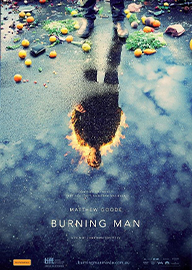피에타 AKA Pietà
- 7.1
- Crime
- 2012
- 1h 44m
- 14+
a gripping and intense South Korean film directed by Kim Ki-duk. This dark drama follows the story of a ruthless loan shark, who lives a life of violence and moral decay, until he encounters a mysterious woman claiming to be his mother. The film explores themes of guilt, redemption, and the complex nature of familial bonds. With haunting visuals and an emotionally charged narrative, Pietà delves into the darker aspects of human nature and the possibility of salvation, offering a raw and unforgettable cinematic experience.













Comments
0Reviews
0Summery
1Please sign in to comment.
Please sign in to review.
Pietà (2012), directed by South Korean filmmaker Kim Ki-duk, is a gripping and dark film that explores the complex and tumultuous relationship between a mother and her son. Known for his raw and emotionally intense storytelling, Kim Ki-duk delivers yet another stark commentary on human nature, morality, and suffering in this disturbing yet powerful film. Pietà won the prestigious Golden Lion at the Venice Film Festival, marking a significant achievement in the world of cinema and cementing Kim Ki-duk's reputation as one of the most important filmmakers of his generation.
The film tells the story of a loan shark named Han-kyu (played by Lee Jung-jin), who works in a ruthless and unforgiving world of moneylending. He is known for his brutal methods of collecting debts, using violence and intimidation to get what he wants. His life is cold and devoid of love, and he remains emotionally detached from the world around him. Han-kyu’s life takes a drastic turn when a woman, who claims to be his long-lost mother, suddenly appears. Played by actress Jo Min-su, the mother enters Han-kyu’s life with a seemingly unconditional love and devotion, claiming that she has come to forgive him for his past mistakes and offer him solace. However, as the story unfolds, the audience is left to question whether her intentions are as pure as they appear, or whether there is a darker motive at play.
At its core, Pietà is a meditation on guilt, redemption, and the complexities of the human heart. Han-kyu’s relationship with his mother is complicated from the start. While he initially rejects her presence, believing that she has no place in his cold and hardened world, he soon begins to develop a complicated attachment to her. The mother's presence forces him to confront the emotional scars from his past, including the traumas and abuses he suffered as a child. Her unconditional love stands in stark contrast to the violent, unforgiving nature of the world he inhabits, creating a powerful juxtaposition that forces both the character and the audience to reflect on the true meaning of love, forgiveness, and redemption.
As the plot develops, the film delves deeper into the moral ambiguity of the characters and their actions. Han-kyu's violent nature begins to clash with the selfless love his mother shows him, and it becomes apparent that his mother’s presence in his life is not as redemptive as it initially seemed. In fact, the revelation of her true intentions shatters the illusion of purity and love, presenting a disturbing twist that challenges the audience’s perception of right and wrong. The complex moral landscape in Pietà asks difficult questions about forgiveness, culpability, and the destructive effects of emotional trauma, leaving the viewer with a deep sense of unease.
The performances in Pietà are hauntingly powerful, particularly that of Lee Jung-jin as Han-kyu. His portrayal of a man who is emotionally frozen, capable only of cruelty and indifference, adds layers of complexity to the character. Lee manages to make Han-kyu both repulsive and tragic, evoking sympathy for a man who seems beyond redemption. On the other hand, Jo Min-su's portrayal of the mother is equally impressive, as she brings an eerie calmness and emotional depth to the role. Her character embodies the paradox of love—her devotion to her son is unquestionable, but her methods of showing it are deeply disturbing and ultimately destructive.
The cinematography in Pietà plays a significant role in enhancing the film's bleak and emotionally charged atmosphere. Shot in muted colors and sparse settings, the film reflects the grim reality of the characters’ lives. The cold, industrial environments in which the story takes place mirror the emotional isolation and cruelty that define Han-kyu’s existence. The use of space in the film is minimalist, allowing the focus to remain on the internal struggles of the characters. This simplicity and starkness create a sense of suffocating tension, which is compounded by the film's minimalistic score—another tool used to evoke a sense of dread and unease.
The film’s structure is deliberate and slow-paced, allowing the viewer to immerse themselves in the emotional turmoil of the characters. Kim Ki-duk's direction is masterful in its ability to elicit strong emotional responses from the audience without resorting to melodrama or overt sentimentality. Instead, Pietà relies on subtlety and silence to convey its emotional weight, making it all the more impactful. The story is spare, yet each scene is charged with meaning, forcing the audience to confront the moral dilemmas presented by the characters’ actions.
In terms of thematic exploration, Pietà is a reflection on the complexities of human relationships, particularly the bond between parent and child. The film raises important questions about the limits of love and forgiveness, suggesting that the lines between good and evil are not always clearly drawn. Han-kyu's journey of self-destruction and his mother's attempts at redemption present a narrative that is both tragic and thought-provoking. The film critiques the idea of unconditional love, suggesting that even the most selfless acts can be tainted by past trauma and personal demons.
Ultimately, Pietà challenges the viewer to consider the consequences of unchecked violence, emotional neglect, and the deep scars that trauma can leave on an individual. It explores the human desire for connection and the ways in which that desire can be corrupted or perverted by life’s painful experiences. The film’s bleak portrayal of human nature is not without hope, but it offers little in the way of easy answers. Instead, it leaves the viewer with a profound sense of sadness, a reflection on the complexities of forgiveness, and a realization that even the deepest wounds may never fully heal.
In conclusion, Pietà (2012) is a deeply disturbing and thought-provoking film that continues to resonate long after the credits roll. Through its stark portrayal of a fractured mother-son relationship, the film delves into themes of guilt, redemption, and emotional trauma. The complex characters, the haunting performances, and the minimalist direction all work in harmony to create a film that is both emotionally powerful and morally challenging. Kim Ki-duk's masterful storytelling presents a grim yet poignant meditation on the nature of love, forgiveness, and the darkness that can reside in even the most intimate human connections. Pietà is a film that lingers in the mind, forcing the viewer to confront uncomfortable truths about the complexities of human emotion and the scars that define us.